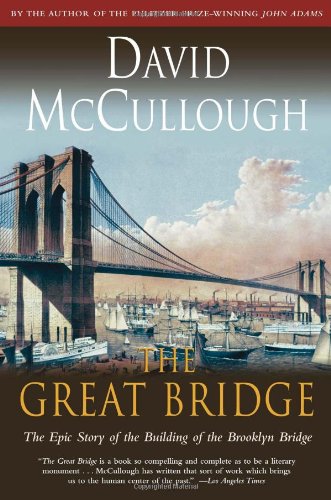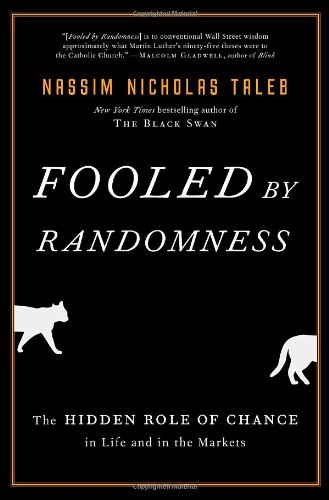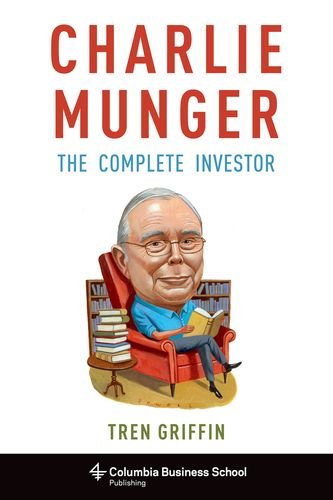Recently I have been reading The Great Bridge by David McCullough, about the building of the Brooklyn Bridge, and which not just describes the construction of the bridge, but also details the people that made it happen. Reading about such an enormous and lasting creation got me thinking about the importance of creating and the effects it can have on one’s life. The bridge was originally designed by John A. Roebling who when describing his creation said the following, while it was still just a proposal:
The completed work, when constructed in accordance with my designs, will not only be the greatest bridge in existence, but it will be the greatest engineering work of the continent, and of the age. Its most conspicuous features, the great towers, will serve as landmarks to the adjoining cities, and they will be entitled to be ranked as national monuments. As a great work of art, and as a successful specimen of advanced bridge engineering, this structure will forever testify to the energy, enterprise and wealth of that community which shall secure its erection.
He set out to design something that was not just functional, but that could also be appreciated as a work of art. Over 130 years later it still stands and is one of the most recognizable bridges in the world. While not exactly modest, his description of the bridge generally seems to have held up, and at the time was rather accurate, he certainly had a great appreciation for his work.
Following an accident during preparations for the building of the bridge Roebling ended up dying of a tetanus infection before he could he see construction even start on his great bridge. His early death did seem to have one noticeable affect on the public as McCullough describes:
Flags were flown at half-staff all over Brooklyn, and when it came time to take the body down to the ferry, to start the trip to Trenton, there was slow going in the streets because of the crowds. As a subject of popular interest, Roebling seemed a more notable success dead than alive. His training, all his ambition and ability, his entire life’s work had been building toward this greatest of bridges and he had not lived to do it–that was a tragedy people could readily understand regardless of how little previous interest they may have had in either the man or his work.
Even though Roebling did not live to see even the start of construction, he left behind sufficient plans that his son was able to take over and manage the construction of the bridge. Just what he was planning to do was enough to draw people to recognize his life and the tragedy of not living to see his greatest work built.
While we all can’t build things as grand as the Brooklyn Bridge, taking time to create, anything, can help us to find, or create meaning for our lives. In the classic, Man’s Search for Meaning, Viktor E. Frankl describes three ways in which to find meaning in life:
An active life serves the purpose of giving man the opportunity to realize values in creative work, while a passive life of enjoyment affords him the opportunity to obtain fulfillment in experiencing beauty, art, or nature. But there is also purpose in that life which is almost barren of both creation and enjoyment and which admits of but one possibility of high moral behavior: namely, in man’s attitude to his existence, an existence restricted by external forces. A creative life and a life of enjoyment are meaningful. If there is a meaning in life at all, then there must be a meaning in suffering. Suffering is an ineradicable part of life, even as fate and death. Without suffering and death human life cannot be complete.
While all are valid ways to find meaning in life, by creating we can define our own meaning, instead of allowing others or our life circumstances to determine the meaning of our life for us. Everyone suffers at some point and the way we deal with suffering can show our strength and shape who we are and how we live our life. If meaning for a life can be found through the passive appreciation of other’s creation, then by creating something, we can not just find meaning for our life, but help others to find meaning for their own life.
By creating, we can take a more active role in shaping our life and determining how we will be remembered. If our life circumstances are such that we cannot possibly do anything, then there can be meaning in our response, how we react to the situation. But if our circumstances allow us the opportunity to do more than just react, then we owe it to ourselves to take advantage of the opportunity to do something, while we still have it. On these opportunities to act and shape our lives and the world around us Frankl said:
The man who experiences his way of being merely as something totally provisional is no longer taking his life quite seriously. So he is at risk of a kind of life in which he does not actualize the possibilities that are offered to him, but rather he forfeits them: he lets them pass him by. He constantly waits for something, without doing his part to make it happen. He becomes fatalistic. Instead of acting from the consciousness of a responsibility, he has the point of view that he should let things go, laissez aller, and let other people do as they please–laissez faire. He changes from a human subject into a mere object–an object of circumstances, of current conditions, of the moment in history. But he overlooks the fact that in history nothing has already been done–rather, everything is to be done. He overlooks the extent to which current conditions depend on him, the fact that they are creatively shapeable; he forgets that he bears a share of the responsibility.
Our consumer culture pushes us to consume ever more, leaving us less and less time to create something of our own. By taking action we can actively create our own history, instead of allow it to happen to us, or be created for us. Creating could be in the form of writing, art, music; but creation doesn’t have to mean the making of a physical object or something tangible. We can create experiences by arranging for something to happen, we can create relationships by interacting with others. Anything that allows us to actively decide what we are going to do and live with intention, instead of merely passively accepting what life hands us and waiting for something to happen.



